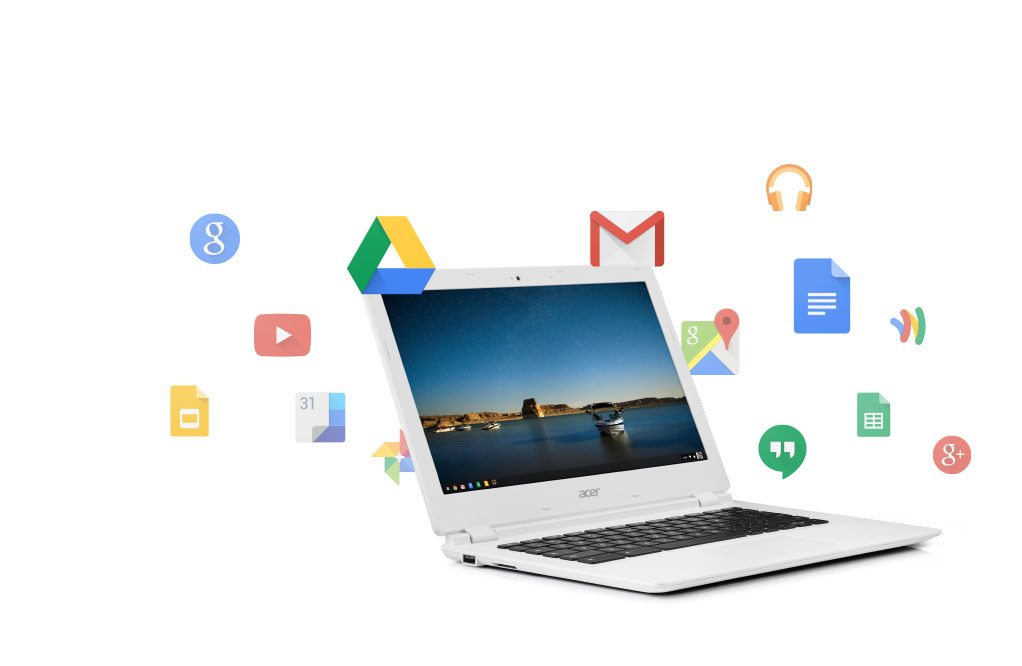You’ve probably heard about Chromebooks but maybe you aren’t sure what separates them from regular laptops. Chromebooks have taken up significant market share over the past few years, especially in the education market. In our last article Buying a New Laptop? We Can Help You Choose, we offered some basic information about these popular alternatives to laptops – which are made by several different manufacturers and generally come with a smaller price tag. Here we explore the advantages and disadvantages of Chromebooks.
Chromebooks are essentially a browser, so anything you can do with the Chrome browser on a regular laptop, you can do with a Chromebook. Google saves your documents safely in the cloud by way of Google Drive (formerly Google Docs) and makes them available to you from anywhere. Chromebooks are also compatible with other common devices such as; phones, tablets, laptops and desktops.
Advantages
Price
Chromebooks are now available for less than $200. When it comes to laptops, we generally don’t recommend purchasing low end models. But with Chromebooks, the technical differences between less expensive and higher priced versions are relatively minimal. Features for which you might choose to pay a higher price include: a more rugged model, more memory, a larger screen or a touch screen.
Speed
The Chromebook boots up from sleep much faster than other computers, due to their leaner operating systems. You can log onto a Chromebook from a cold start within 20 seconds, a very convenient feature.
No viruses
There are no known viruses that can target a Chromebook. Google has taken great care to secure the operating system and prevent malware from having any chance of getting in. This is a significant advantage (especially if the device is in the hands of a teenager).
They still run Flash
Unlike iPads & other tablets, Chromebooks have the advantage of being able to run Flash which is still used by many websites today. (Though we refer to Flash as the web technology that refuses to die – because of its slowness, vulnerability to malware, and given the availability of better alternatives.)
Disadvantages
No desktop applications
Traditional applications like Photoshop or AutoCAD do not run on Chromebooks. There are plenty of substitutes; for example Pixlr which offers a Photoshop experience on the web or WeVideo for video editing. In fact, most major software companies provide a web based alternative to their standard programs. These include Microsoft’s most popular Office applications Word, Excel and PowerPoint, and Google’s Docs, Sheets and Slides. However, be aware that the quality of these web-based alternatives is generally not as high. This limitation can be a deal breaker for some, though the web-based programs should be perfectly adequate for the average user.
Many people think that Chromebooks are more limited in their ability to be used without internet access. Truthfully, this is often less of an issue than it may seem – it just requires a little prior planning. Also, Google has made it easy and seamless to synchronize your documents in order to make them available offline.
Conclusion
Unless you need a computer that can handle heavy duty computing or you require particular desktop applications, Chromebooks can be a great alternative, especially for personal use or as a secondary computer.


